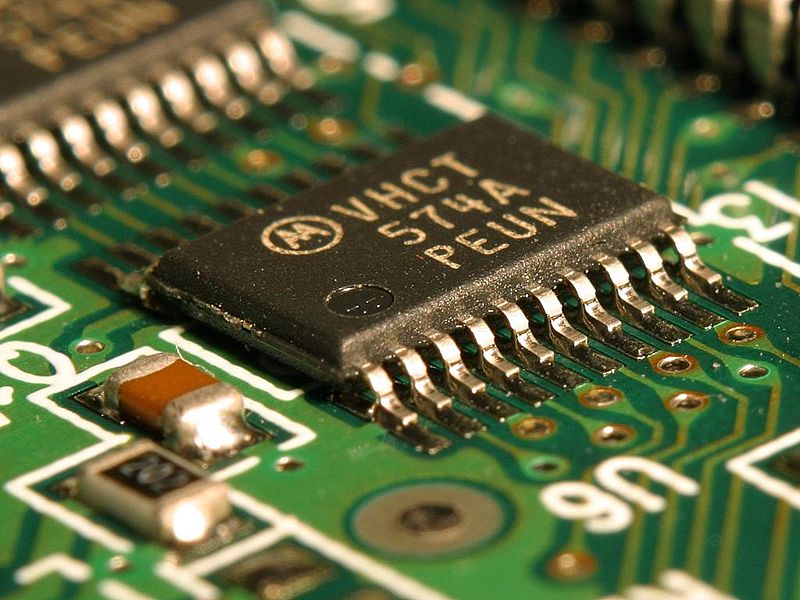A quicker cheaper way of making computer chips has been developed.
Integrated circuits, or silicon chips are now an absolutely critical part of our everyday life they are so cheap that it can make sense to put a computer into a juggling ball, but they are only cheap if they are made by the million, so most problems are solved with general purpose processors. These are great but they can be hundreds of times slower and less power efficient than custom circuits.
 You make a silicon chip by making a mask with a pattern on it, then using UV light, photographically transferring this pattern onto a layer of plastic the chip and then etching away some of the silicon where the plastic has been removed. Different materials are added onto the silicon and then etched away up to 30 times, and you end up with a working chip. The problem is that the masks, a set can cost up to $3 million which means that if you only want a few thousand chips they cost a complete fortune, plus of course if you make a mistake in making the mask it is very very expensive.
You make a silicon chip by making a mask with a pattern on it, then using UV light, photographically transferring this pattern onto a layer of plastic the chip and then etching away some of the silicon where the plastic has been removed. Different materials are added onto the silicon and then etched away up to 30 times, and you end up with a working chip. The problem is that the masks, a set can cost up to $3 million which means that if you only want a few thousand chips they cost a complete fortune, plus of course if you make a mistake in making the mask it is very very expensive.
One alternative that has existed for a long time is to get rid of the mask completely and use an electron beam to write directly onto the plastic, but this is very very slow as there can be a billion transistors on a modern chip. Engineers working for KLA-Tencor have developed a system which instead of using one beam uses up to a million at once. They send a beam of electrons at a special chip covered in pixels that can be programmed to be transparent or act as a mirror to these electrons. They then focus the reflected beams onto the plastic on the silicon. They then move the beam around and paint the whole chip. They are aiming to be able to make a whole 15inch wafer in less than 10 mins.
This is unlikely to compete with photolithography for large quantitity production but for research and specialist applications such as the military it could be very economic.
References
- Previous How time flies
- Next Tough metallic glasses










Comments
Add a comment